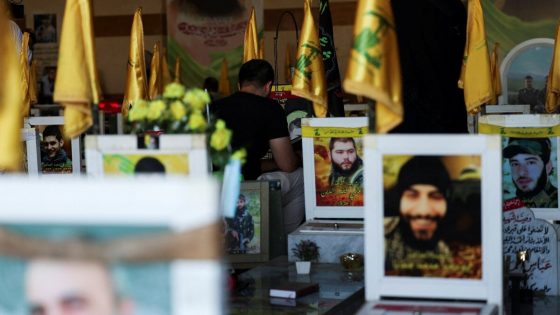As thousands of pagers and electronic devices exploded across Lebanon in two days, they helped create a map of Hezbollah fighters and their homes. There is no doubt that the detonations were a spectacular covert operation by Israel, though the Jewish nation hasn’t officially accepted or rejected the claim. What is being pointed out by experts is that Israel’s ultimate aim, through these explosions, is much bigger than just targeting Hezbollah foot soldiers.
Strategic and military experts are suggesting that the series of explosions in two days have served multiple purposes while providing an opening for a major military offensive by Israel.
After thousands of pagers exploded on September 17, dozens of walkie-talkies, solar panels and other devices went off a day later. On Wednesday, the Day 2 of explosions in Lebanon, Israeli Defence Minister Yoav Gallant said Israel was “opening a new phase in the war”.
Israel attacked a day later. The attacks on Thursday came as Hezbollah chief Hassan Nasrallah was delivering a speech, calling the pager blasts a declaration of war by Israel.
There had been reports that Israel was moving its troops north, along its border with Lebanon, as the offensive in Gaza slows down.
A ground offensive against Iran-backed Hezbollah was part of the bigger plan after exploding the devices, sources told Axios and Al-Monitor. They said the explosions had to be rushed as Israel became concerned that Hezbollah had become aware of the plan.
So, what are the five objectives of the synchronised blasts across Lebanon?
1. Mapping Hezbollah Network
At least 32 people were killed and thousands injured in the blasts. But had that been the aim, the devices could have been packed with more powerful explosives.
Latest reports suggest that the pagers were rigged with explosives, likely PETN, by an Israeli shell company that supplied around 5,000 devices to Hezbollah. The terrorist group had switched to pagers from cellphones in its attempt to hoodwink the Israeli intelligence agencies.
Though Israel has an extensive espionage system in place in both Lebanon and the Palestinian territories, the blasts might have helped it identify the thousands of unknown Hezbollah fighters and pinpoint their location. It now has a massive trove of information on them, their sympathisers, colleagues and homes.
2. Disabling Communication Network
Communication, which is key to settling disputes, is more important in war scenarios. For any effective military campaign, an efficient communication network is crucial.
What is common in the two days of explosions is communication devices. If pagers were blown up on Day 1, walkie-talkies exploded on Day 2.
Hezbollah fighters ditched their mobile phones after their chief Hassan Nasrallah in February asked them to get rid of cellphones because they had been infiltrated by Israeli intelligence agencies.
Without mobiles, walkie-talkies and pagers, Hezbollah would be hobbled if it were to face a strike from Israel.
3. Cripple Hezbollah fighting machine
Latest reports indicate an intricate operation under which Israel set up a shell company to manufacture pagers. It made the pagers, laced them with explosives and delivered them to Hezbollah.
If Israeli agents manufactured and rigged the pagers, why didn’t they add enough explosives to kill hundreds?
There could be two reasons behind that. One, they couldn’t risk adding a larger amount of explosives because of the collateral damage. The pagers then would have left a huge death toll, including hundreds of innocents.
If it is risky to take out the fighters, why not render them useless? That’s the second reason. Israel wanted to leave the Hezbollah fighters temporarily disabled as it swooped in.
“Each explosion may have been small, but some resulted in catastrophic injuries,” according to a BBC report.
After the two waves of explosions, around 3,000 Hezbollah fighters are out of action at least for weeks now. The Hezbollah war machinery is somewhat crippled.
4. Explosions provided opening
Detonating the pagers was planned as the opening move in an “all-out” offensive against Hezbollah, US and Israeli officials told Axios on condition of anonymity.
It was planned for later, but Israel became concerned that Hezbollah might have got a whiff of the plan, so the electronic devices were set off early, according to the Axios report cited by the BBC.
With communication networks down, and thousands of Hezbollah fighters disabled, there couldn’t be a better time for Israeli offensive in Lebanon.
5. Massive psychological advantage
Israel has gained a huge psychological advantage over Hezbollah with the pager explosions.
“War is an affair of the mind as much as anything else. By showing its extraordinary reach, Israel will breed internal fear and suspicion that can be more paralysing than fear of an enemy,” said Mark Dubowitz, CEO of the Washington DC-based think tank The Foundation for Defense of Democracies.
Patrick Fox, a military expert and United States Air Force veteran, said it was a major victory for the Israelis against Hezbollah.
“…The psychological impact of forcing the enemy to regard his own electronics as potentially lethal hazards represents a major win for the Israelis,” Fox wrote on X.
As Israel launches the offensive into Lebanon, it has started with an amazing advantage, all because of thousands of exploding pagers. The small explosions have not only crippled the communications network and crippled Hezbollah’s war machinery, it has given a tremendous psychological advantage to the Israelis.
Source Agencies




